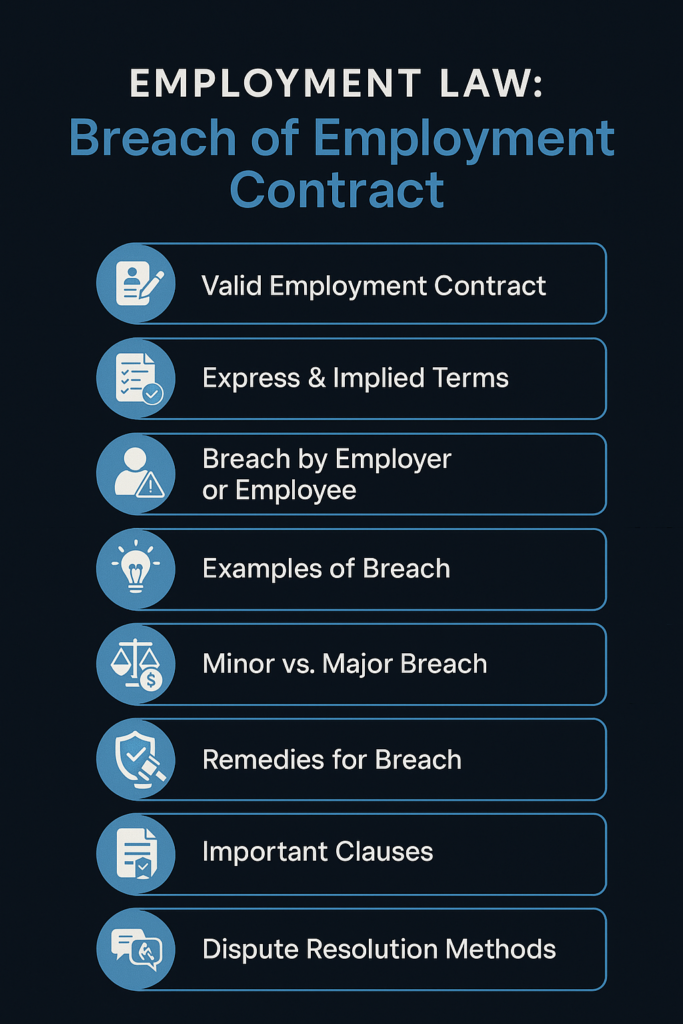How We Handle Employment Law Cases?
At SNS Legal Aid, we assist businesses and employees in understanding and complying with Indian employment laws to avoid disputes and legal complications. Our employment law services include:
- Employment Contracts & Offer Letters – Drafting legally binding agreements.
- Employee Rights & Workplace Policies – Ensuring fair treatment and compliance with labor laws.
- Wrongful Termination & Severance Disputes – Protecting employer and employee rights.
- Employee Provident Fund (EPF) & Gratuity Issues – Resolving financial and retirement disputes.
- Sexual Harassment at Workplace (POSH Compliance) – Legal assistance in implementing policies and handling complaints.
- Wage & Overtime Disputes – Ensuring fair compensation practices.
- Labour Law Compliance for Businesses – Helping companies comply with labor laws.
- Industrial Disputes & Employee Unions – Representing clients in labor court and negotiations.


Basic Laws & Acts Involved in Employment Law
- The Industrial Disputes Act, 1947 – Governs employer-employee conflicts, layoffs, and strikes.
- The Minimum Wages Act, 1948 – Regulates wage policies and fair compensation.
- The Payment of Wages Act, 1936 – Ensures timely salary payments.
- The Maternity Benefit Act, 1961 – Provides benefits for pregnant employees.
- The Employee Provident Fund (EPF) Act, 1952 – Regulates retirement benefits.
- The Contract Labour (Regulation & Abolition) Act, 1970 – Governs employment of contract workers.
- The Shops and Establishments Act – Regulates employment conditions for businesses.
- The Sexual Harassment of Women at Workplace (Prevention, Prohibition & Redressal) Act, 2013 – Ensures a safe workplace.
Basic Laws & Acts Involved in Employment Law
- The Industrial Disputes Act, 1947 – Governs employer-employee conflicts, layoffs, and strikes.
- The Minimum Wages Act, 1948 – Regulates wage policies and fair compensation.
- The Payment of Wages Act, 1936 – Ensures timely salary payments.
- The Maternity Benefit Act, 1961 – Provides benefits for pregnant employees.
- The Employee Provident Fund (EPF) Act, 1952 – Regulates retirement benefits.
- The Contract Labour (Regulation & Abolition) Act, 1970 – Governs employment of contract workers.
- The Shops and Establishments Act – Regulates employment conditions for businesses.
- The Sexual Harassment of Women at Workplace (Prevention, Prohibition & Redressal) Act, 2013 – Ensures a safe workplace.
Employment Law Services We Offer
✅ Drafting & Reviewing Employment Contracts
✅ Workplace Dispute Resolution
✅ Employee Rights & Benefits Advisory
✅ POSH Compliance & Harassment Cases
✅ Labor Law Compliance for Companies
✅ Representation in Labor Courts
✅ Wrongful Termination & Wage Dispute Claims
Frequently Asked Questions (FAQs)
Employment contracts must include job responsibilities, salary, termination clauses, confidentiality agreements, and dispute resolution terms as per The Indian Contract Act, 1872.a
Termination without notice is illegal unless stated in the contract. The Industrial Disputes Act, 1947, mandates that termination must follow proper procedures.
Under The Payment of Wages Act, 1936, employees can legally demand timely payments or file a complaint with the labor department.
As per The Maternity Benefit Act, 1961, female employees are entitled to 26 weeks of paid leave if they have worked for at least 80 days in the past 12 months.
Businesses should regularly update policies, ensure payroll compliance, provide a safe workplace, and seek legal consultation for labor law adherence.
Victims can file complaints under The Sexual Harassment of Women at Workplace Act, 2013 and seek legal recourse through POSH committees or labor courts.
Under The Contract Labour (Regulation & Abolition) Act, 1970, contract employees cannot claim permanent employment unless explicitly stated in their contract.
We provide legal consultation, contract drafting, compliance support, dispute resolution, and representation in labor courts for both employers and employees.
Wrongful termination occurs when an employee is fired without just cause or due process. Employees can file a complaint under The Industrial Disputes Act, 1947.
Deductions must comply with The Payment of Wages Act, 1936, and any unauthorized deduction is illegal unless mentioned in the employment contract.

